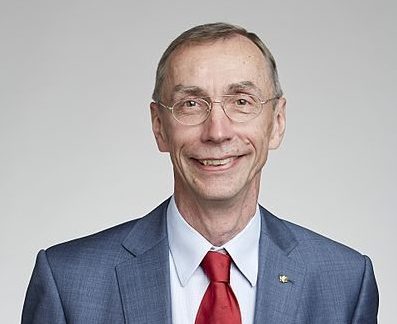Il Nobel Prize 2022 for Medicine and Physiology was designated to the Swedish biologist and geneticist Svante Pääbo “for his discoveries concerning the genomes of extinct hominids and human evolution”. These are the words of the official page The Nobel Prize posted in a tweet.
Let’s find out who the “archaeologist of evolution” is, why he won the Nobel and what results he achieved during his career.
Who is the winner of the Nobel Prize in Medicine and Physiology 2022
On Monday 3 October 2022, the Nobel Prize Commission awarded the Swedish biologist Svante Pääbo the prize of the Medicine and Physiology section for obtaining results concerning the genomes of extinct hominids and human evolution.
Considered “the DNA archaeologist” as well as the father of paleogenomicsa new scientific discipline that deals with reconstructing and analyzing genomic information in extinct species, Pääbo conducted a study on DNA of ancient hominids reconstructing part of the history of mankind.
His research integrates new approaches in molecular biology, physical anthropology and bioinformatics to carry out innovative genetic research “on populations over an exceptional period of time and geographic area“, expanding the field of action to study of phylogeny, of genetics of extinct animals (mammoths, land sloths and cave bears) and the genetic history of pathogens causing serious diseases (leprosy, tuberculosis, plague, etc.).
From sequencing the Neanderthal genome to paleogenomics
Thanks to his research which began more than a decade ago, Pääbo was the first to succeed in sequencing both the mitochondrial genome and the entire Neanderthal nuclear genomea species that became extinct about 30,000 years ago.
But Paabo is not only known for having succeeded in this feat: he made the sensational discovery of a new hominid that we did not know existed, called Denisova and found that the gene transfer it happened from these onymids to Homo sapiens about 70,000 years ago following the migration from Africa. This consideration has great relevance especially in medical and physiological fieldrevealing that the way our immune system responds to infections may stem from the flow of ancient genes obtained from these distant “cousins” of ours.
Pääbo’s research is funded by the European Research Council (ERC) thanks to which he obtained amazing results by making him receive his first ERC Advanced Grant in 2008 to study the genomic and phenotypic evolution of bonobo, chimpanzee e humans. In 2015 he was also awarded a second ERC Advanced Grant to study the genome sequences of extinct hominids: this second project led to the sequencing of new genomes of Neanderthalincluding those from Croatia and Siberia, as well as new ones Denisovan genomes and gods early modern humans.
Svante Pääbo’s career
Svante Pääbo (Stockholm, 1955) ha studied and worked at some of the university they institutes most prestigious in the world: the University of Uppsala (Sweden), that of Zurich (Switzerland), of Berkeley (United States) and Munich (Germany). He currently works atMax Planck Institute for Evolutionary Anthropology in Leipzig in the department of genetics (of which he has been director since 1997) and, at the same time, is also teacher in Japan at the Okinawa Institute of Science and Technology. But that’s not all: it is member of the European Molecular Biology Organization (EMBO) and many prestigious academies including the Royal Society (UK), the French Academy of Sciences and the National Academy of Sciences of the United States.

Although his studies were initially directed towards the History of Science and Egyptology, Svante decides to devote himself to molecular biology when he began to analyze the DNA of Egyptian mummies and men buried in the icethen moving on to the genetic study of human language and to research on the hominid genome that continues today.
Just to finish with the icing on the cake, Pääbo was also awarded the the Leibniz prize of the Deutsche Forschungsgemeinschaft (the highest German scientific honor) in 1992, of the premio Cysts in 2009 and the Theodor Books Medal In 2010.
